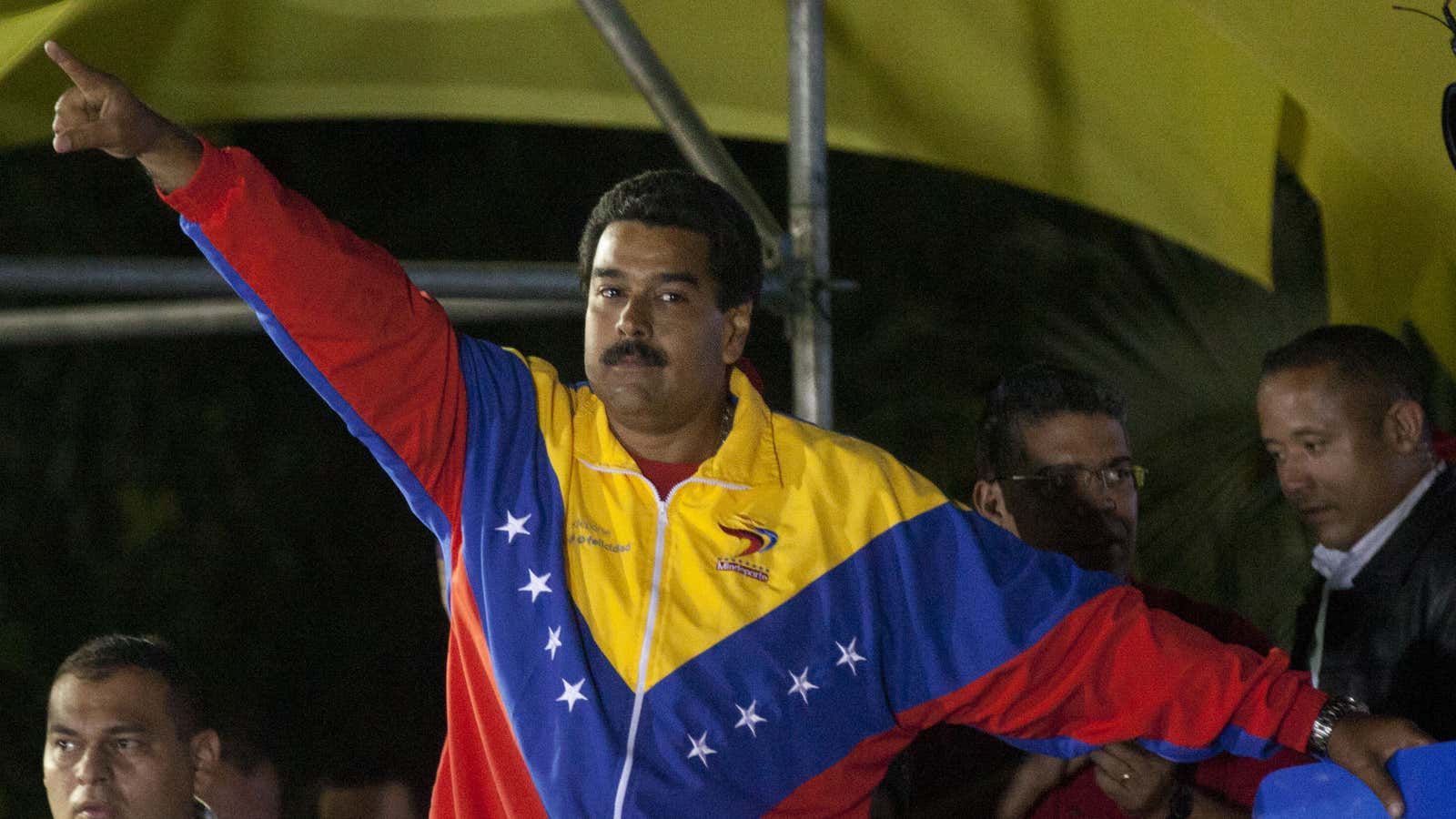By a paper-thin margin, Venezuelan voters chose former president Hugo Chavez’s anointed successor, Nicolas Maduro, as their new president on Sunday. Maduro declared himself victor over opposition candidate Henrique Capriles Radonski, a centrist, saying that Chavez’s socialism “continues to be invincible, that he continues to win battles” and stating, “Mission accomplished, Commander Chavez.”
Maduro, who had been Chavez’s vice president, has served as acting president since the leader’s death in early March and was expected to win handily.
That didn’t happen. The former bus driver squeaked by with just 50.7%—less than 250,000 votes out of some 14.78 million cast.
Capriles is contesting the vote and has refused to concede, saying, “We will not recognize any results until each vote of the Venezuelan people has been counted.”
However, it’s not yet clear whether there will be a recount.
During his 14-year tenure, Chavez nationalized industry after industry, though his confiscation of the country’s oil reserves—supposedly, the world’s largest—remains particularly controversial. While Chavez’s policies helped improve the lives of poor Venezuelans, the state’s mismanagement of its oil industry now threatens the country’s economy. Capriles focused his campaign on highlighting ”the incompetence of the state” in managing its oil reserves.
Some Venezuela-watchers expect that the darker legacies of Chavez’s policies—including crime and corruption—have set up his successor for failure. ”This is a Pyrrhic victory,” Orlando Ochoa, an economist at the Andres Bello Catholic University, told the Wall Street Journal (paywall). “Within a year, he’s going to have real trouble.”
